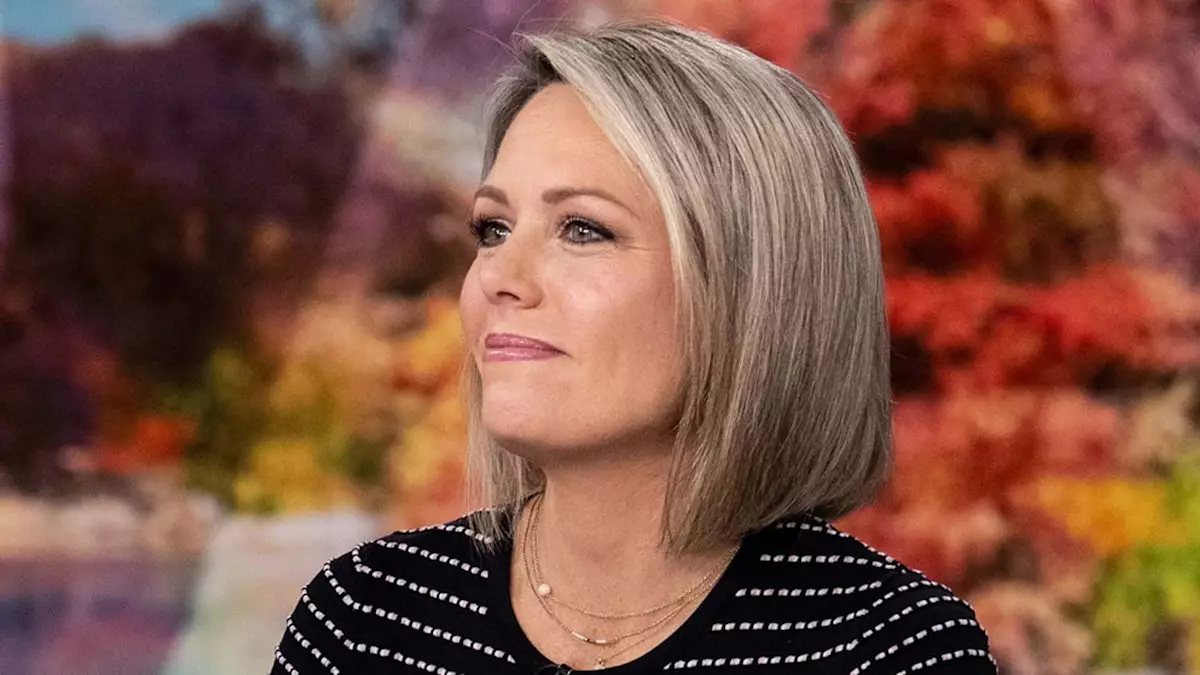Dylan Dreyer, known for her role as a weather anchor on the Today Show, has recently emerged as a passionate advocate for gluten-free awareness. This advocacy trajectory began after her son, Calvin, was diagnosed with celiac disease in 2023. It is a chronic condition that requires strict adherence to a gluten-free diet, meaning that traditional food sources could pose serious health risks. Dreyer’s personal experience resonates deeply with many families facing similar challenges. Her commitment to bringing attention to the scarcity of gluten-free options in everyday settings—particularly at airports and restaurants—demonstrates not only her love and dedication as a mother but also an understanding of a much larger social issue.
As someone who works in the public eye, Dreyer has effectively leveraged her platform to garner support, educate the public, and advocate for available gluten-free options. Raising awareness in a world that often overlooks dietary restrictions can significantly change lives, transforming what might feel like an isolating experience into one of shared understanding and community support.
Advocacy Through Personal Experience
On March 25th, Dreyer shared an uplifting update on her family’s journey during a segment on Today. The day marked a special occasion for them: a Boston Red Sox game dedicated to raising celiac disease awareness. It was a watershed moment for Dreyer and Calvin; for once, they could enjoy the quintessential American pastime of attending a baseball game without the constant anxiety of food safety looming over them. The Red Sox organization’s efforts to provide an array of gluten-free food options were an embodiment of what she has been advocating for—not just for her family but for all families navigating the challenges of celiac disease.
Dreyer’s comment on the experience beautifully captures a feeling shared by many parents in her position: the inability to simply enjoy life’s experiences without the burden of food-related concerns. She expressed how their usual outings often necessitated packing substantial meals from home, restricting them from fully engaging in the spontaneity and joy of simple family outings. This night at the ballpark illustrated progress—not just in their family’s experience but as a collective societal movement toward inclusivity and awareness.
Building Connections Through Social Media
Consistently, Dreyer has utilized her social media to promote gluten-free recipes and to share what she learns along this journey. Her cooking segment with her son, aptly named “Cooking with Cal,” has become a platform where families can find practical, accessible solutions to gluten-free cooking. Through this creative outlet, she not only fosters a deeper bond with her son but also encourages audiences to embrace dietary diversity in a positive light.
While sharing recipes might seem like a small contribution, it plays a key role in demystifying gluten-free cooking for her followers. It opens conversations surrounding dietary limitations, fosters a sense of community, and breaks down stigmas often attached to gluten-free diets. This interplay of personal experience and social sharing creates a greater understanding of celiac disease, making it less of an isolated struggle and more of a shared challenge.
International Perspectives on Gluten-Free Living
Dreyer’s travels to the UK provided her with a unique lens on the accessibility and affordability of gluten-free products abroad. Her observations about British supermarkets, particularly Waitrose, underscore a stark contrast between American and UK approaches to the celiac community. The pricing discrepancies—affording her gluten-free flour for a fraction of the price she would pay in the States—prompt important questions about healthcare policies and dietary product availability in both regions.
This commentary recognizes a critical gap in how celiac disease is treated and accommodated in various cultures, calling for better legislative and societal support for those living with dietary restrictions. It’s a powerful reminder that systemic change is necessary to ensure individuals with celiac disease can live healthier, more fulfilling lives without the financial burdens that can accompany proper dietary care.
In sharing these experiences, Dreyer solidifies her role as a crucial figure in driving gluten-free awareness, not by merely recounting her family’s hurdles, but by advocating for meaningful change. Her journey shines a light on the realities faced by many families, pushing for a future where gluten-free living is normalized and accessible for all.

